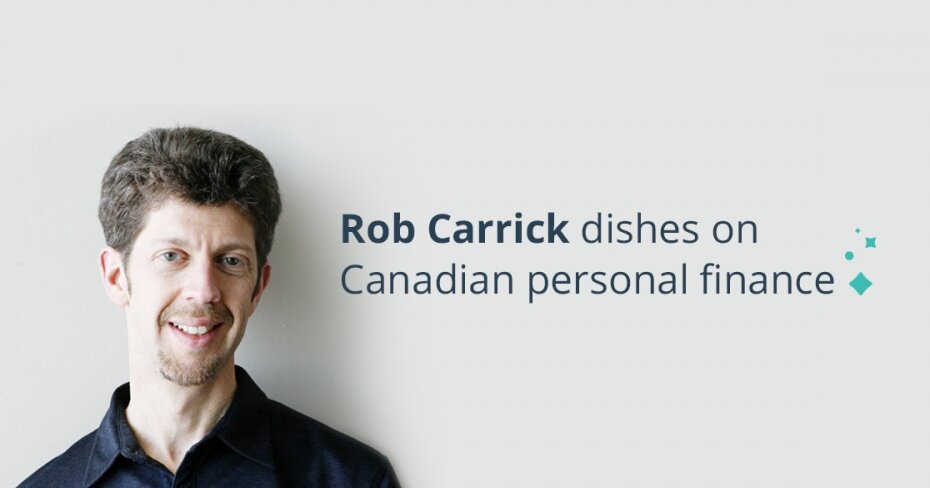Rob Carrick dishes on Canadian personal finance
By: Dominic Licorish on May 20, 2016
How keyed into the world of personal finance are you? Chances are that you’ve heard much about the troubling state of housing in the country’s biggest cities. You may have even read about how your finances will change under the newly formed federal government. But personal finance in Canada can be an overwhelming topic, so we got an expert to boil it down.
Rob Carrick is one of Canada’s most prominent authorities on money. He’s been a contributor to the Globe and Mail for 20 years, penning a variety of advice columns on investing, retirement, and making the most of your cash whether you’re trying to get out from under debt or you’re sitting on a sizeable inheritance.
We got Rob on the phone so he could share his take on the current state of personal finance in Canada and offer his most essential tips for money in 2016. To bring you this interview, we worked with Miami-based broadcast expert and savings guru, Josh Elledge. Together, he and Rob looked at some of the ways personal finance in Canada diverges from our neighbour to the south.
Read on for select excerpts from the interview or listen to the full chat below.
Canadians need to curb their debt
LR: Compared to the United States, what do Canadians in particular need to pay attention to?
RC: If I had gone back 20 years I would have said that what was unique about Canadians were very conservative with debt, very reluctant borrowers, but in the last 20 years we have become enthusiastic borrowers, while we have been becoming more comfortable with debt, Americans have at the same time been doing the opposite. Their economy sort of hit a wall in 2008, there was a big reckoning, too much debt, people realized it they cut back on their borrowing and now there is a much more manageable level of debt. But here in Canada I think we are taking on debt by the minute, most of it is related to housing but it's not strictly that it's also lines of credit and credit cards and such and I think we should be mindful of what the Americans did, they sort of got their debt in hand, not the government perse but on the individual level and I think we Canadians would do well to follow that.
Maybe homeownership isn’t right for everybody
LR: Let me ask you about homeownership, because you had recently written about this. So home ownership should be the goal of every adult, right?
RC: Well I completely disagree with that, here in Canada because the housing market has gone up, up, and up in most cities not all but most in the last 10-20 years, people have begun to think of housing as foolproof and that you’re missing out if you don't own. So on one thing you've got the emotional benefits of owning a house but here in Canada there is a huge argument that it’s a windfall financially and if you hold for a couple years your house will just go up, up and up in value and you’ll sell with a big profit and retire... I think I am seeing a much saner view of housing in the States because you had the housing crash and that has taught people to be much more realistic of what a house is. It's a place to live it can appreciate but it can also go down in price, which we are not that realistic about here.
Millennials need to think about stocks not homes
LR: In terms of debt and homeownership, particularity if you look at millennials, you’ll see there is some strong sensitivity because they were the ones who were graduating college when there were absolutely no jobs. Almost like the depression era families, millennials have become a little more defensive with their money.
RC: Yes I think they have. Here in Canada, millennials still aspire to own homes like any other group. They’re being priced out of the market in a lot of cities, but they are very eager to own. When it comes to investing their money, yes they are a bit risk adverse. Someone who is 30 has seen the stock market crash twice. There was the tech wreck in the early 2000’s and the last crash [in the late 2000’s]; they don’t feel they can trust the stock market long term. I think they need to have a lot of money in stocks. I think they need to think about it over four years and let that money appreciate. I don't think they’re going to like the retirement they're going to get if they keep their money in savings accounts, or interest bearing securities like bonds.


